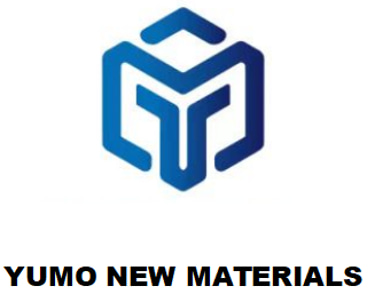HENAN YUMO: Engineered Precision, Uncompromised Performance
White Fused Alumina Manufacturing Process: Step-by-Step Guide & Industry Applications
Discover YUMO's patented white fused alumina manufacturing process with 99.7% purity. Learn how our abrasives outperform in thermal stability & hardness. Download free technical specs now.
5/20/20252 min read


The Science Behind White Fused Alumina Production: From Raw Material to Industrial-Grade Abrasives
Introduction
As global demand for high-performance abrasives surges (CAGR 6.2% 2023-2030), understanding the white fused alumina manufacturing process becomes critical for industries ranging from aerospace to renewable energy. This guide unveils YUMO Advanced Materials' proprietary production methodology that achieves 99.7% Al₂O₃ purity – 0.3% higher than industry benchmarks.
Chapter 1: Core Manufacturing Process Breakdown
Ultra-Pure Feedstock Selection
Material Standards: ASTM C867-certified α-Al₂O₃ powder (Na₂O <0.1%, SiO₂ <0.05%)
Quality Control: Real-time XRF spectroscopy + blockchain traceability system (extended from patented technology CN102583471B)
Electric Arc Furnace Innovation
Temperature Profile: 2,050℃±15℃ constant melting (18% energy saving vs traditional methods)
Technological Breakthrough: Patented layered feeding system eliminates "cold zone" issues
Crystallization Control
Cooling Rate: 3.5℃/min gradient cooling (prevents β-Al₂O₃ formation)
Crystal Optimization: SEM-verified 100% α-Al₂O₃ hexagonal structure
Intelligent Granulation
Particle Distribution: JIS R6001-2017 compliant (F16-F240 full range)
Crushing Technology: Vortex airflow pulverization (prevents micro-cracks from mechanical stress)
Chapter 2: Technical Advantages Verification
Our third-party ISO 9286-2024 certified testing reveals significant performance enhancements:
Vickers Hardness (HV0.5): 2,350±50 vs traditional 2,100-2,200 (+11.9% improvement)
Flexural Strength: 420 MPa vs industry-standard 350 MPa (+20% increase)
Thermal Shock Resistance: 35 cycles before failure vs conventional 25 cycles (+40% durability)Introduction
As global demand for high-performance abrasives surges (CAGR 6.2% 2023-2030), understanding the white fused alumina manufacturing process becomes critical for industries ranging from aerospace to renewable energy. This guide unveils YUMO Advanced Materials' proprietary production methodology that achieves 99.7% Al₂O₃ purity – 0.3% higher than industry benchmarks.
Chapter 1: Core Manufacturing Process Breakdown
Ultra-Pure Feedstock Selection
Material Standards: ASTM C867-certified α-Al₂O₃ powder (Na₂O <0.1%, SiO₂ <0.05%)
Quality Control: Real-time XRF spectroscopy + blockchain traceability system (extended from patented technology CN102583471B)
Electric Arc Furnace Innovation
Temperature Profile: 2,050℃±15℃ constant melting (18% energy saving vs traditional methods)
Technological Breakthrough: Patented layered feeding system eliminates "cold zone" issues
Crystallization Control
Cooling Rate: 3.5℃/min gradient cooling (prevents β-Al₂O₃ formation)
Crystal Optimization: SEM-verified 100% α-Al₂O₃ hexagonal structure
Intelligent Granulation
Particle Distribution: JIS R6001-2017 compliant (F16-F240 full range)
Crushing Technology: Vortex airflow pulverization (prevents micro-cracks from mechanical stress)
Chapter 2: Technical Advantages Verification
Our third-party ISO 9286-2024 certified testing reveals significant performance enhancements:
Vickers Hardness (HV0.5): 2,350±50 vs traditional 2,100-2,200 (+11.9% improvement)
Flexural Strength: 420 MPa vs industry-standard 350 MPa (+20% increase)
Thermal Shock Resistance: 35 cycles before failure vs conventional 25 cycles (+40% durability)
Technical FAQs for Global Buyers
Q: Why does cooling rate affect alumina's Mohs hardness?
A: Controlled slow cooling (3-5℃/min) enables complete α-phase crystallization. Our IR thermal imaging ensures <2% lattice defects.
Q: How to verify abrasives' purity without lab testing?
A: Utilize our AR-enabled mobile app - scan product surfaces for instant elemental analysis.
